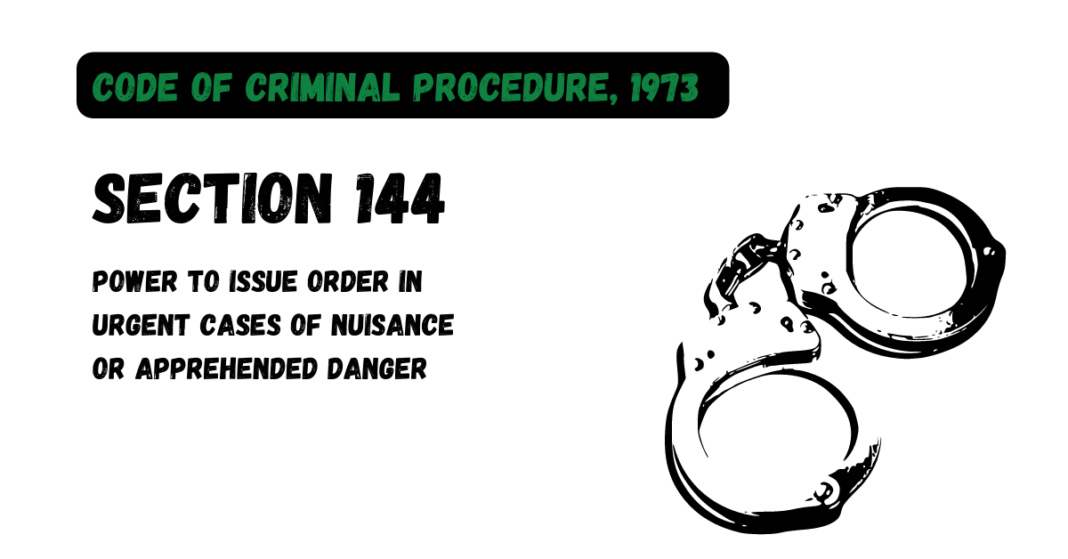(1) In cases where, in the opinion of a District Magistrate, a Sub-divisional Magistrate or any other Executive Magistrate specially empowered by the State Government in this behalf, there is sufficient ground for proceeding under this section and immediate prevention or speedy remedy is desirable, such Magistrate may, by a written order stating the material facts of the case and served in the manner provided by section 134, direct any person to abstain from a certain act or to take certain order with respect to certain property in his possession or under his management, if such Magistrate considers that such direction is likely to prevent, or tends to prevent, obstruction, annoyance or injury to any person lawfully employed, or danger to human life, health or safety or a disturbance of the public tranquillity, or a riot, or an affray.
(2) An order under this section may, in cases of emergency or in cases where the circumstances do not admit of the serving in due time of a notice upon the person against whom the order is directed, be passed ex parte.
(3) An order under this section may be directed to a particular individual, or to persons residing in a particular place or area, or to the public generally when frequenting or visiting a particular place or area.
(4) No order under this section shall remain in force for more than two months from the making thereof:
Provided that, if the State Government considers it necessary so to do for preventing danger to human life, health or safety or for preventing a riot or any affray, it may, by notification, direct that an order made by a Magistrate under this section shall remain in force for such further period not exceeding six months from the date on which the order made by the Magistrate would have, but for such order, expired, as it may specify in the said notification.
(5) Any Magistrate may, either on his own motion or on the application of any person aggrieved, rescind or alter any order made under this section, by himself or any Magistrate subordinate to him or by his predecessor-in-office.
(6) The State Government may, either on its own motion or on the application of any person aggrieved, rescind or alter any order made by it under the proviso to sub-section (4).
(7) Where an application under sub-section (5) or sub-section (6) is received, the Magistrate, or the State Government, as the case may be, shall afford to the applicant an early opportunity of appearing before him or it, either in person or by pleader and showing cause against the order; and if the Magistrate or the State Government, as the case may be, rejects the application wholly or in part, he or it shall record in writing the reasons for so doing.





